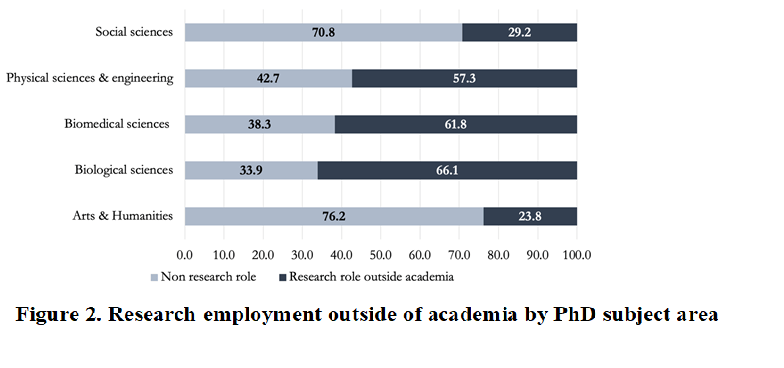The Misogynoir to Mishpat (M2M) Research Network is interested in assisting those with doctorates in religion. If you are a subscriber to this website, you will have seen articles here regarding upcoming deadlines for fellowships, academic grants and seminars.
You will also have seen both articles with tips to improve your academic writing and invitations to submit abstracts for upcoming publications with academic journals and book publishers. The feeling of isolation, for many, begins soon after receipt of the PhD. Where is the support in helping you land a paid position? Who has a vested interest in your success and long-term contributions to your discipline?

If you inhabit that ambiguity, you are not alone. Here at M2M Research Network, we will continue to: 1) provide resources to assist, 2) create seminars to walk you though opportunities to strengthen your applications, 3) introduce you to professionals (grant managers, editors) who can provide you with that extra information you need to put it together!
The following article, by Sally Hancock, provides information regarding the employment prospects of doctoral graduates in the UK. It introduces you to the information and data regarding those who receive their PhDs and now seek to become gainfully employed. Sometimes, it can be helpful to know others are struggling alongside you.
However, if you are interested in turning your obstacles into opportunity, please stay tuned for our seminars where you will receive support. There is, indeed, power on the margins! We continue to share information here to help open those gates!
The Misogynoir to Mishpat (M2M) Research Network © 2023
The employment of PhD graduates in the UK: what do we know?
17 February 2020
By Sally Hancock
This blog was kindly contributed by Dr Sally Hancock, Lecturer in Education at the University of York. This blog features some of her research supported by a Society for Higher Education Newer Researcher Award (reference: NR201609). The dataset was prepared for analysis by the Higher Education Statistics Agency (HESA).
In recent decades, the number of PhDs awarded by universities has steadily and in some countries rapidly increased. Across the world, governments have invested in PhD education as part of a broader strategy to develop knowledge-based economies. This agenda, supported by organisations such as the OECD and World Bank, states that future national prosperity requires both the creation, application and dissemination of knowledge, and a supply of highly skilled workers.
In the UK, PhD holders are similarly valued for their ‘vital contribution to British industrial performance and improved economic productivity’. There has been considerable investment both in skills training to prepare PhDs for employment outside of academia and more recently, through the introduction of loans to attract more individuals to doctoral study. If the government is to achieve its ambition of increasing expenditure on research and development to 2.4 per cent of GDP by 2027, it is estimated that a further 25,000 PhD students will need to be recruited.
The expansion in doctoral education has not been viewed positively by all. Some question whether there are already too many PhDs and ask whether there are sufficient employment opportunities outside of the academic sector. Several studies suggest that many PhD students continue to prefer academic employment, leading to harsh competition in the academic sector and frustrated ambitions. The mismatch between PhDs’ career expectations and realities has been cited as one of the factors underpinning the relatively poor mental health and wellbeing of this group.
The existing evidence on PhD employment is, however, relatively limited, as PhDs have historically received far less attention than undergraduates. Research suggests that PhD graduates enjoy both higher earnings and higher rates of skilled employment, but this varies significantly by field of study and national context. Developing a reliable evidence base for the UK context is therefore particularly important amid plans for further investment and growth. Over the last decade, reports by Vitae have demonstrated that a diminishing proportion of PhD graduates will secure academic employment. Nonetheless, there is a wealth of qualitative data which suggest the enduring preference of academic careers among PhDs, together with a reluctance to consider ‘alternative’ careers.
In an effort to better understand the outcomes of PhDs, and especially what happens to those who leave the academic sector, this new study made use of the best available data on PhD employment in the UK. These data are collected through the Destinations of Leavers of Higher Education Longitudinal Survey (Long DLHE) which records activity three-and-a-half years after graduation. While HESA does not regularly publish findings on PhD employment, DLHE data have been analysed for this purpose before, most notably by Vitae.
The dataset analysed for this study, however, was different in that it incorporated additional information on PhD holders’ academic and demographic characteristics, linked from the Student Record. Put simply, this allows PhD employment outcomes to be examined in relation to factors such as PhD subject and institution, prior qualifications, age, gender and ethnicity. In total, the dataset includes just under 5,000 UK PhD holders, who graduated in 2008/9 or 2010/11 (a response rate of 39.5 per cent)
Considering first the promises of the knowledge economy, the Long DLHE offers some optimistic indicators. PhD holders’ report higher average earnings than those with a first degree or Master’s only. However, there are notable variations in earnings by the subject, with Arts and Humanities PhD holders earning significantly less than all other subject areas. PhD graduates also report higher rates of skilled employment, though we should note that definitions of ‘skilled work’, and what counts as PhD-level skilled work in particular are highly contested.
Employment outcomes by sector
Turning to consider employment outcomes by sector, figure 1 demonstrates that the vast majority of UK PhD holders (70.1 per cent) have left the academic sector three-and-a-half years after graduation. Of those who remain in academia, one-third are undertaking research, while two-thirds occupy the role ‘higher education teaching professional’. This distinction is admittedly problematic in that it conflates those employed with teaching-only contracts with those in more conventional academic positions (combining teaching, research and administrative duties). Unfortunately, the Long DLHE data cannot generate a more detailed insight into the roles PhD holders are undertaking in academia.
Of those who have left academia, just over half (53.8 per cent) report that they are still engaged in research, with the rest (46.2 per cent) stating that they no longer undertake or work with research. Logistic regressions conducted to predict which PhD holders secure research roles outside academia suggest that PhDs from Russell Group institutions, scientific subject areas (biological sciences; biomedical sciences; physical sciences and engineering), and male PhD holders are significantly more likely to secure research employment. This suggests that while there is evidence of a science-focused knowledge economy in the UK, the recognition of Arts and Humanities and Social Science PhDs – and their research skills – across non-academic sectors is less clear. These findings also suggest that gender and institutional prestige are associated with forging a research career outside of the academy.
While the Long DLHE affords broad insights into the employment destinations of PhD holders, it ultimately provokes more questions than it can answer. Critically, the Long DLHE imparts very little on decision-making or other circumstantial factors that may explain why a particular career pathway unfolds as it does. Perhaps the observation that PhD graduates who are no longer employed in research, whether in academia or beyond, report significantly lower career satisfaction is evidence enough that withdrawing from research is not the intention for many.

If doctoral expansion and the policy promises underpinning this continues, it is vital for the UK to develop better methods to capture the contributions of PhD holders. Following the initiatives of other nations, stakeholders of the UK doctorate ought to prioritise longitudinal methods of data collection, which are rich on demographic and decision-making information.





